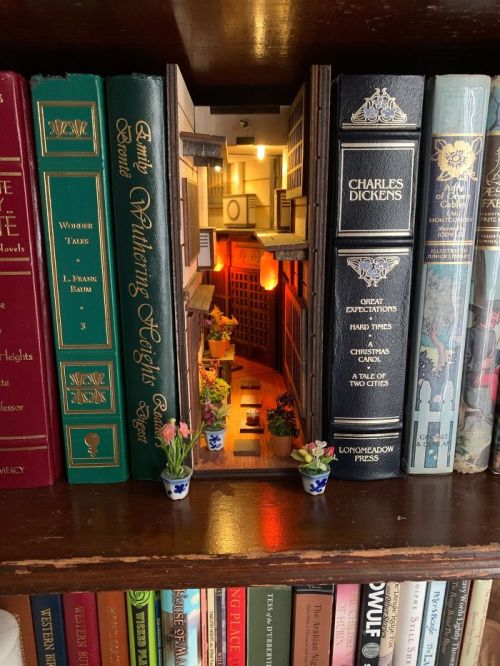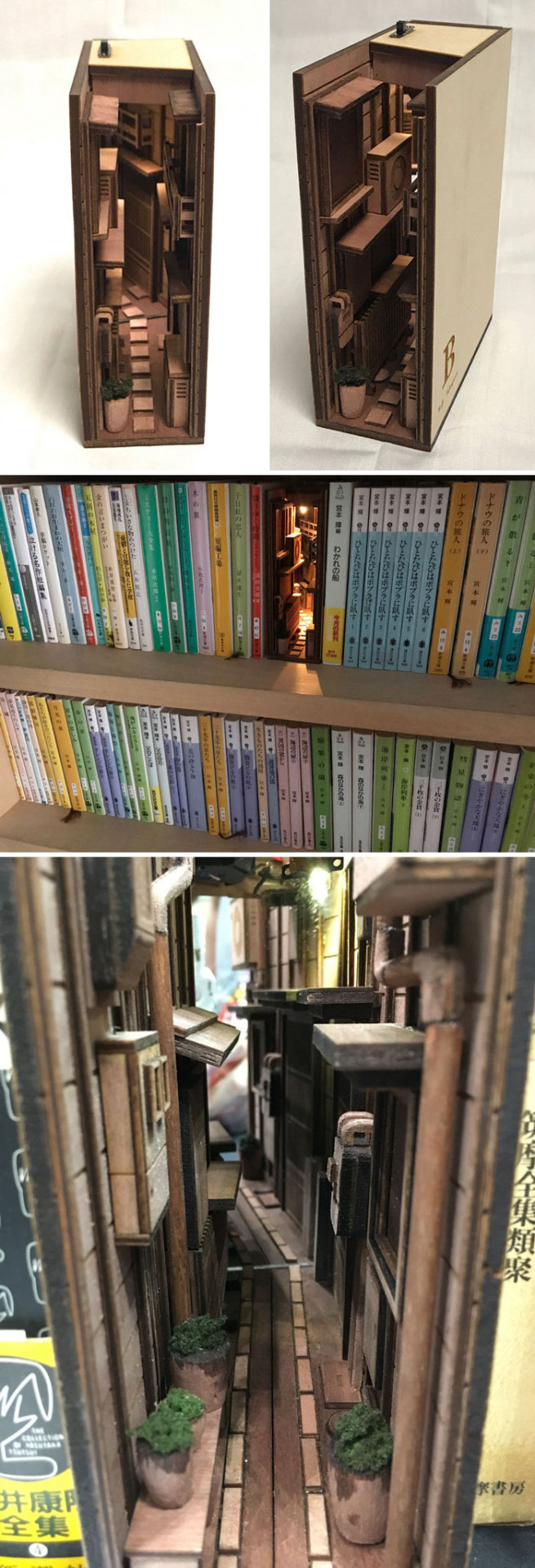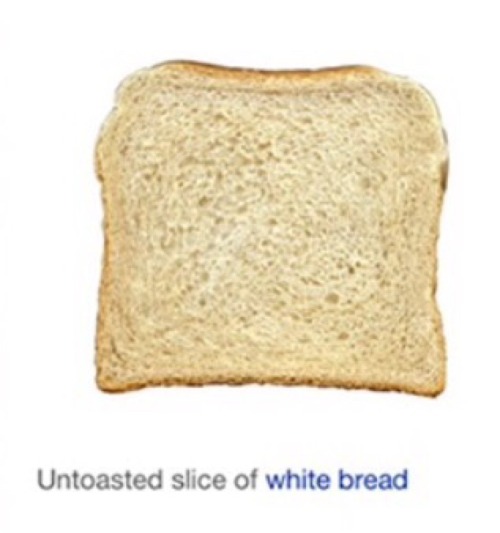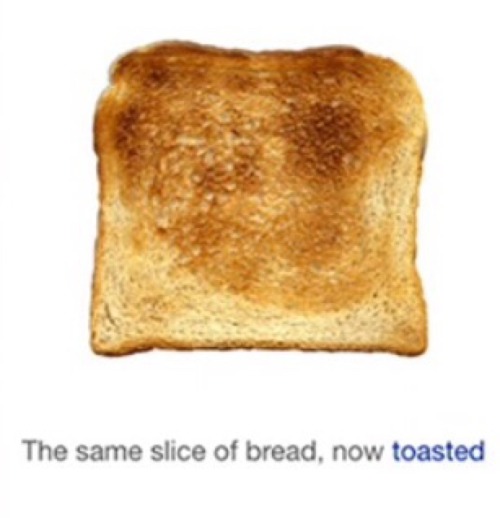Stars Of Chaos 杀破狼
Stars of Chaos 杀破狼
Vol 2, Notes 1. Pages 21 - 46.
A very kind tumblr user had to educate me that, yes, Priest edited her work after it was published (stolen on to?) on pirate websites, and so, yes, the translators were working off of a different version than I read.
But I LOVE the version I read, so I'm sharing it with you. You get BOTH.
Please excuse my angry "MISSING PARAGRAPH!" hand-written notes, as I did not realize that official edits were made post-pirate-publication.
Below are many possibly-unnecessary cultural notes that I think are just really neat, plus differences between versions. (I love the old one!)
Here we go:

Very cool word, 帅。
Usually, I read or hear it in reference to some guy being very cool. Devilishly handsome. Dashing.
Here, 大帅 is used as "Commander-in-Chief," which is the same thing as "Marshal," which can mean (dictionary.com) "a military officer of the highest rank" as well as the one I'm more familiar with, "chief of a police or fire department in some cities."
I just like how, in Chinese, I can also-interpret that everyone is calling him "Big Handsome."

Yah, Chen QingXu is a Boss. Who introduces herself as, like, a snake-oil peddler.

讷于言 The young soldier was bad at words. Not sparing, not careful; just bad.

悬壶济世 hang pot save world, because so much of Chinese medicine is boiling herbs for patients to drink.

No one is putting powder in leather sachets. It's dried herbs.

I usually agree with the Seven Seas' formatting, but I think it would be more clear if those sentences were broken into the original two separate paragraphs.

Top: Gold Tank = container for violet gold. It took me a second to figure that out.
Bottom: 小兄弟. I love how you can combine the "older brother" 兄 with the "younger brother" 弟, add a "little" 小 in the front, and it becomes, effectively, "Bro," but respectful.

In case you can't read my tiny bad handwriting: there used to be another paragraph here about how Gu Yun wants to see Chen QingXu because his meds are losing effect. The effects of drinking the meds used to last for months, then weeks, and now they only last two days.
And on the facing page, in the illustration, Chang Geng should be ON his horse.

It hits a little different, I think, to say You have to bathe and change your clothes just to walk your horse? And it has to be this exact time and place?

锋芒毕露 "sharp point must expose"
After years spent guarding the Silk Road, Gu Yun's propensity to show off had gradually faded...
OK. I think ten is enough for this post. More to come...
My DanMei Literary Adventure Masterpost
Stars of Chaos - All Notes Links
More Posts from Weishenmewwx and Others
Stars of Chaos 杀破狼
Volume 3, Notes 3/5, Pages 152 - 265

Cute trivia: in the online novel, this entire paragraph is One Sentence. 9 commas. No semi-colons.
This is (part of the reason) why it takes me 3-12 months to read a single Priest novel.

In case you don't already know, there is a lovely story about an emperor who had a male lover who fell asleep on the long, voluminous sleeve of his robe; and rather than wake the lover, the emperor just cut off his sleeve so that he could go work without bothering his sweetie. And now 断袖 "cut sleeve" is another word for "homosexual man."

I love the idiom for this situation: 投鼠忌器 "throw" "mouse" "afraid" "devices," or "afraid to throw anything at the mouse for fear of breaking the vases."

So, 蹂躏 does translate as "violated," but it also translates as "savaged" or "trampled," both of which I think fit here better.

Here, 完蛋 a little more vulgar than I like to think of it. I'm pretty sure this is a phrase you can use around elementary school kids. It means "to be done for," like "Uh oh. We've been caught."

Top: "Bat out of hell" in Chinese is 赶投胎似的 = like he's rushing to be reincarnated. (I find Western theology- based idioms disconcerting in Daoist/Buddhist- based novels. I understand that they convey the meaning most accurately, but it still weirds me out.)
Bottom: So cute! They are using food-based euphemisms. The Chinese for "eat his fill" is 吃了顿荤的 = "eat a meal with meat" ¬‿¬. And then they break the metaphor with "ended up in the wrong position" (on bottom instead of on top). And then return to the food euphemism with "nearly choked to death." Cute, yah?

xiansheng 先生 = "Teacher", in this context.

I added a (1) and a (2) because I started getting confused.
I also added unnecessary Chinese on "If you're so smart", that it started out (in the online version, anyway), as "你有注意" "If you have ideas,..."

OMG. If you go to a robust Chinese dictionary and search for the Chinese translation for "me," you will get SO MANY WORDS back.
One of those many words is 孤, which was used by feudal princes for a time? And 孤 usually means "lonely" or "solitary."

He climbed on Gu Yun's shoulder. 肩膀。
Either way, he's being carried around by Gu Yun and leaving drool marks on Gu Yun's shoulder <3
My DanMei Literary Adventure Masterpost
Stars of Chaos - All Notes Links
2HA Audio Drama S3 Ep 4 + ED Song Unsaid Words English Subbed

Hello everyone~ ^v^
2HA (The Husky and His White Cat Shizun) Audio Drama S3 Ep 4 & ED Song Unsaid Words are now available~!
These files can be accessed via our discord server. To request an invite to the server, please fill up this >> request form <<
Please note: When you put down your responses in the above-linked form, please just put down a link to your social media profile. Only writing your social media username does not give us any information on which social media website you are referring to, and so, I won’t be able to process such requests. Also, if you just write some random answer (like OK) for this question, your request will definitely not be considered and no invite will be sent to you.
Many a times, it happens that our email to you having the invite link goes to your spam folder in your mailbox. So please do check once check there once and if you still haven’t received an invite, contact us on tumblr.
Also, please do double-check the email address you put down because one reason for you not receiving any invite could also be that you put down a wrong email address and so the mail bounced back.
*********
Our ongoing projects: >> Link <<
Our Carrd: >> Link <<
*********
Notes:
1) Please use >> VLC Player << to play the file. It is available for a large range of operating systems as well as devices.
For advanced users, I’d recommend >> K-lite codec pack + MPC-HC player << Standard version or above. The player is included from the standard version onwards.
2) Please avoid sharing these files on YouTube and other video streaming platforms. If you wish to share our subbed files, please just reblog or link this tumblr post.
3) Copper Coins, Global Examination, Panguan, Qianqiu, Mou Mou, and Mo Dao Zu Shi Audio Dramas are paid dramas. So please consider purchasing these audio drama if possible in order to support the original content creators. Links to the original CN audio only ADs have been linked in the >> projects << page for ease of navigation.
*********
Enjoy~! :)
Bookshelf inserts
hey say that you can’t judge a book by its cover. But what if the cover alone can tell you the whole story? Welcome to the world of book nooks where creativity runs wild!
These hand-made creations will draw you into tiny places of wonder: from the hobbit hole to the Blade Runner-inspired apocalyptic alley or Lord of the Rings-themed door replica equipped with motion sensors.
This book nook my mother got on Ebay

A Magical bookshop in your own bookshelf

I made a booknook for a christmas gift, my inspiration was Blade Runner. It’s 11" X 6"

Not only are book nook inserts a fun way to train your creativity muscle, they can also be a solution to making reading great again. A recent study done by Pew Research Center showed that a staggering quarter of American adults don’t read books in any shape or form. The same study suggested that the likelihood of reading was directly linked to wealth and educational level. Add high levels of modern insomnia and full-time employment that leaves many of us drained at the end of the day, and the idea of opening a book seems unappealing, to say the least.
Now imagine yourself walking past a bookshelf full of these mini worlds—the dioramas of an alley. They catch your attention and you cannot help but see what’s inside. The pioneer of the book nook concept is the Japanese artist Monde. Monde introduced his creations to the Design Festa in 2018 and received overwhelming feedback. 178K likes on twitter later, Monde has become an inspiration to the aspiring arts and crafts lovers who join on r/booknooks to share their spectacular ideas.
Hobbit Hole

Design, print and paint a small shelf to decorate shelves

worlds hidden in a bookcase

A double wide endor inspired wilderness piece

Old Italy book nook

Diagon Alley booknook

Witch is watching you

Warhammer-style booknook

Creature from the Black Lagoon bookshelf monster

A booknook inspired by Les Miserables

source https://www.boredpanda.com/book-nook-shelf-inserts
I love this so much, thank you!😊❤️❤️❤️❤️❤️
MDZS Weibo update, 1.22.2022 “Does the following collection of warm smiles from Hanguang Jun also touch you? There is still 1 day before Hanguangjun's birthday.”
Me: Yes, Yes it does! Hanguang Jun handsome Hanguang Jun.. may his days always be filled with warm smiles and happy moments with Wei Ying






The portraits of Yiling Laozu
Still trying to figure out why I like this look so much…
Would you be willing to talk about how standards of masculinity and femininity in Asia differ from those in Europe/North America? I know, it's a ridiculously broad question but I think you mentioned it in passing previously and I would be really interested in your answer especially in the context of the music industry and idols. I (European) sometimes see male Asian idols as quite feminine (in appearance, maybe?) even if they publicly talk about typically masculine hobbies of theirs.
Hi Anon,
Sorry that it took me over a month to get to this question, but the sheer volume of research that is necessary to actually answer this is significant, as there is an enormous body of work in gender studies. There are academics who have staked their entire careers in this field of research, much of which isn’t actually transnational, being that regional gender studies alone is already an incredibly enormous field.
As such, in no way can I say that I’ve been able to delve into even 1% of all the research that is out there to properly address this question. While I can talk about gender issues in the United States, and gender issues that deal with Asian American identity, I am not an expert in transnational gender studies between Asia and Europe. That being said, I’ll do my best to answer what I can.
When we consider the concept of “masculinity” and “femininity,” we must first begin with the fundamental understanding that gender is both a construct and a performance. The myth of gender essentialism and of gender as a binary is a product of patriarchy and compulsory heterosexuality in each culture where it emerges.
What you must remember when you talk about gendered concepts such as “masculinity” and “femininity” is that there is no universal idea of “masculinity” or “femininity” that speaks across time and nation and culture. Even within specific regions, such as Asia, not only does each country have its own understanding of gender and national signifiers and norms that defines “femininity” or “masculinity,” but even within the borders of the nation-state itself, we can find significantly different discourses on femininity and masculinity that sometimes are in direct opposition with one another.
If we talk about the United States, for example, can we really say that there is a universal American idea of “masculinity” or “femininity”? How do we define a man, if what we understand to be a man is just a body that performs gender? What kind of signifiers are needed for such a performance? Is it Chris Evan’s Captain America? Or is it Chris Hemsworth’s Thor? What about Robert Downey Jr.’s Tony Stark? Do these characters form a single, cohesive idea of masculinity?
What about Ezra Miller’s Barry Allen? Miller is nonbinary - does their superhero status make them more masculine? Or are they less “masculine” because they are nonbinary?

Judith Butler tells us in Gender Trouble (1990) and Bodies That Matter: On the Discursive Limits of “Sex” (1993) that what we call gender is inherently a discursive performance of specific signifiers and behaviors that were assigned to the gender binary and enforced by compulsory heterosexuality. She writes:
Insofar as heterosexual gender norms produce inapproximate ideals, heterosexuality can be said to operate through the regulated production of hyperbolic versions of “man” and “woman.” These are for the most part compulsory performances, ones which none of us choose, but which each of us is forced to negotiate. (1993: 237)
Because gender norms vary regionally, there are no stable norms that coalesce into the idea of a single, universal American “masculinity.” What I mean by this is that your idea of what reads as “masculine” might not be what I personally consider to be “masculine,” as someone who grew up in a very left-leaning liberal cosmopolitan area of the United States.
What I am saying is this: Anon, I think you should consider challenging your idea of gender, because it sounds to me like you have a very regionally locked conception of the gender binary that informs your understanding of “masculinity” and femininity” - an understanding that simply does not exist in Asia, where there is not one, but many different forms of masculinity.
China, Japan, and South Korea all have significant cultural differences and understandings of gender, which has a direct relationship with one’s national and cultural identity.
Japan, for example, might consider an idol who has long, layered hair and a thin body to be the ideal for idol masculinity, but would not consider an idol to be representative of “real” Japanese masculinity, which is epitomized by the Japanese salaryman.

South Korea, however, has a very specific idea of what idol masculinity must look like - simultaneously hypermasculine (i.e. extremely muscular, chiseled body) and “feminine” (i.e. makeup and dyed hair, extravagant clothing with a soft, beautiful face.) But South Korea also presents us with a more “standardized” idea of masculinity that offers an alternative to the “flowerboy” masculinity performed by idols, when we consider actors such as Hyun Bin and Lee Min-ho.

China is a little more complex. In order to understand Chinese masculinity, we must first understand that prior to the Hallyu wave, the idea of the perfect Chinese man was defined by three qualities: 高富帅 (gaofushuai) tall, moneyed, and handsome - largely due to the emergence of the Chinese metrosexual.
According to Kam Louie:
[The] Chinese metrosexual, though urbanized, is quite different from his Western counterpart. There are several translations of the term in Chinese, two of the most common and standard being “bailing li'nan” 白领丽男 and “dushili'nan” 都市丽男,literally “white-collar beautiful man” and “city beautiful man.” The notion of “beautiful man” (li-nan) refers to one who looks after his appearance and has healthy habits and all of the qualities usually attributed to the metrosexual; these are also the attributes of the reconstituted “cool” salaryman in Japan, men who have abandoned the “salaryman warrior” image and imbibed recent transnational corporate ideologies and practices.
[...]
In fact, the concept of the metrosexual by its very nature defines a masculinity ideal that can only be attained by the moneyed classes. While it can be said to be a “softer” image than the macho male, it nevertheless encompasses a very “hard” and competitive core, one that is more aligned with the traditional “wen” part of the wen-wu dyad that I put forward as a conventional Chinese ideal and the “salaryman warrior” icon in Japan. Unsurprisingly, both metrosexuality and wen-wu masculinity are created and embraced by men who are “winners” in the patriarchal framework.
The wen-wu 文武 (cultural attainment – martial valor) dyad that Louie refers to is the idea that Chinese masculinity was traditionally shaped by “a dichotomy between cultural and martial accomplishments” and is not only an ideal that has defined Chinese masculinity throughout history, but is also a uniquely Chinese phenomenon.
When the Hallyu wave swept through China, in an effort to capture and maximize success in the Chinese market, South Korean idol companies recruited Chinese idols and mixed them into their groups. Idols such as Kris Wu, Han Geng, Jackson Wang, and Wang Yibo are just a few such idols whose masculinities were redefined by the Kpop idol ideal.

Once that crossover occurred, China’s idol image shifted towards the example South Korea set, with one caveat: such an example can only exist on stage, in music videos, and other “idol” products. Indeed, if we look at any brand campaigns featuring Wang Yibo, his image is decisively more metrosexual than idol; he is usually shot bare-faced and clean-cut, without the “idol” aesthetics that dominate his identity as Idol Wang Yibo. But, this meterosexual image, despite being the epitome of Chinese idealized masculinity, would still be viewed as more “feminine” when viewed by a North American gaze. (It is important to note that this gaze is uniquely North American, because meterosexual masculinity is actually also a European ideal!)

The North American gaze has been trained to view alternate forms of masculinity as non-masculine. We are inundated by countless images of hypermasculinity and hypersexual femininity in the media, which shapes our cultural consciousness and understanding of gender and sexuality and unattainable ideals.
It is important to be aware that these ideals are culturally and regionally codified and are not universal. It is also important to challenge these ideals, as you must ask yourself: why is it an ideal? Why must masculinity be defined in such a way in North America? Why does the North American gaze view an Asian male idol and immediately read femininity in his bodily performance? What does that say about your North American cultural consciousness and understanding of gender?
I encourage you to challenge these ideas, Anon.
“Always already a cultural sign, the body sets limits to the imaginary meanings that it occasions, but is never free of imaginary construction.” - Judith Butler
Works Cited
Butler, Judith. Gender Trouble. New York, NY, Routledge, 1990. Butler, Judith. Bodies That Matter: On the Discursive Limits of Sex. New York, NY, Routledge, 1993. Flowerboys and the appeal of 'soft masculinity' in South Korea. BBC, 2018, Louie, Kam. “Popular Culture and Masculinity Ideals in East Asia, with Special Reference to China.” The Journal of Asian Studies, Volume 71, Issue 4, November 2012 , pp. 929 - 943 Louie, Kam. Chinese, Japanese, and Global Masculine Identities. New York, NY, Routledge, 2003.
MDZS Volume 4 Annotations
Part 4, pages 152 - 174
More notes on MDZS vol 4! A few anti-slang, and then a lot of clarifications of sentences or words that I felt were strange or misleading or not as precise as they could be.

More below the cut!









My new reading list! So far, I’ve got 杀破狼 done.
hunxi’s danmei awards 2.0! (aka 2022 edition)
Featuring the return of some categories such as:
Best Worldbuilding
Best Interrogation of Themes (aka the “Rent-Free Award”)
Best Moment That Wrecked Me (aka the Knifiest Award)
Best Beleaguered Side Character Award
Best Unreliable Narrator
As well as never-before-seen categories like:
Best Himbo
Most Brilliant Moment of Backstabbery
Most Ambitious Scope
Most Heartwrenching Line Delivery in an Audiodrama
…and more!
This year’s candidates in the running:
《小蘑菇》 Xiao Mo Gu by 一十四洲 Yi Shi Si Zhou
《不小心救了江湖公敌》 Bu Xiao Xin Jiule Jianghu Gong Di by 六木乔 Liu Muqiao (有声漫画 audiomanhua season 1)
《无双》 Wu Shuang by 梦溪石 Meng Xishi
《问鹿三千》 Wen Lu San Qian by 光合积木 Voicegem, 吼浪文化 Houlang Studio, and 斗木獬编剧工作室 Doumuxie Screenwriting Studio
《师弟还不杀我灭口》 Shidi Hai Bu Sha Wo Mie Kou by 子鹿 Zi Lu
《默读》 Mo Du by priest
《督主有病》 Du Zhu You Bing by 杨溯 Yang Su
《海中爵》 Hai Zhong Jue by 七药 Qi Yao
《哏儿》 Gen’er by 南北逐风 Nan Bei Zhu Feng
《杀破狼》 Sha Po Lang by priest
《金牌助理之弯弯没想到》 Jin Pai Zhu Li zhi Wan Wan Mei Xiang Dao by (nominally) 非天夜翔 Fei Tian Ye Xiang and (mostly) 传奇火箭队 The Legendary Rocket Team
(unmarked spoilers, including but not limited to these titles, under the cut. for introductions of these titles, click here. for last year’s danmei awards, click here)
Keep reading
I spent a fair potion of my formative years idolizing Frank Frazetta / his artwork. He gave hope to all those who didn’t look like modern-day wraith-thin models. Though you have to do a Lot of working out to look like His models. Time to go do some push-ups!
older lotr illustrations sometimes depict éowyn wearing ridiculously small armour. apart from the problem general sexualisation of the only female character (who really does anything), there’s another hilarious thought:
éowyn pretended to be dernhelm, a man. to fit in, she must have worn men’s armor. so the armor in the illustrations is normal for rohirrim.
therefore, all the rohirrim rode to war just like that:

-
 brights-dawn liked this · 6 months ago
brights-dawn liked this · 6 months ago -
 northisnotup liked this · 6 months ago
northisnotup liked this · 6 months ago -
 neunshi liked this · 8 months ago
neunshi liked this · 8 months ago -
 angrybubbles liked this · 9 months ago
angrybubbles liked this · 9 months ago -
 lishangyin liked this · 9 months ago
lishangyin liked this · 9 months ago -
 rosie-josi liked this · 9 months ago
rosie-josi liked this · 9 months ago -
 barbiejedi liked this · 9 months ago
barbiejedi liked this · 9 months ago -
 spockoholic liked this · 9 months ago
spockoholic liked this · 9 months ago -
 mejomonster liked this · 9 months ago
mejomonster liked this · 9 months ago -
 weishenmewwx reblogged this · 9 months ago
weishenmewwx reblogged this · 9 months ago




